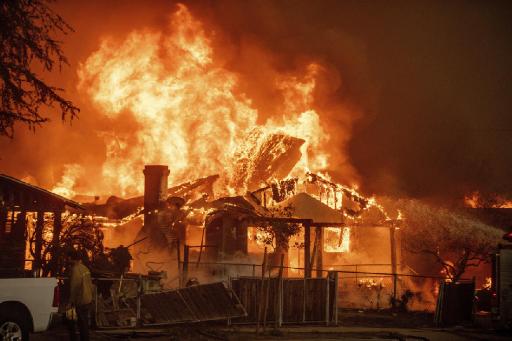
About California wildfire
The California real estate industry appears to have backfired on itself in unprecedented ways. For the first time, we’re witnessing some wealthy individuals facing homelessness. This serves as a stark reminder: we should never look down on those less fortunate, as any of us could one day find ourselves in need of help.
The recent devastating fires in Los Angeles have predominantly affected affluent neighborhoods, while homes in lower-income communities have remained largely untouched. Ironically, just weeks before these fires, major insurance companies announced they would no longer insure homes in California. A key reason behind this decision is the state’s exorbitant housing prices.
For instance, a basic two-bedroom home made of drywall, wooden framing, copper wiring, and plumbing starts at around $200,000 in a run-down area—if one is even available. In more desirable neighborhoods, prices exceed a million dollars. These inflated values have made homes seem overvalued and risky to insure, prompting many insurers to leave the market.
The inflated housing prices in California have created a system where banks, real estate agencies, and insurance companies profit massively. These entities have prioritized short-term gains over long-term sustainability, resulting in a housing market that excludes ordinary Americans. Many have been forced to leave the state, unable to afford the rising costs.
This relentless push to increase real estate values has caused the industry to collapse under its own weight. Only the wealthy can afford to own property in California, while lower-income families are relegated to renting. Some affluent neighborhoods deliberately priced out lower-income buyers to maintain exclusivity. Now, these same neighborhoods with multimillion-dollar homes are being ravaged by fires.
Many of these homes were purchased decades ago when prices were reasonable, particularly by individuals in California's music and film industries. However, as these industries have evolved, some property owners are no longer earning what they once did and cannot afford today’s inflated prices. This could result in some of the same individuals who once looked down on the homeless facing homelessness themselves.
The fires also underscore a broader message about nature’s power. The elements—fire, wind, and water—cannot be controlled, no matter one’s wealth or status. This serves as a humbling reminder that material possessions are temporary, and life itself holds greater value. Perhaps this tragedy will draw attention to the greed that fueled California’s housing crisis and prompt reforms to make homes affordable for everyday Americans once again.
Beyond the real estate crisis, nature’s imbalance—caused by pollution, resource exploitation, and humanity’s disregard for the environment—is compounding global challenges. These fires are a symptom of a world out of balance. Hopefully, this serves as a wake-up call, not just for California but for all of us, to prioritize sustainability, equity, and respect for the natural world.






